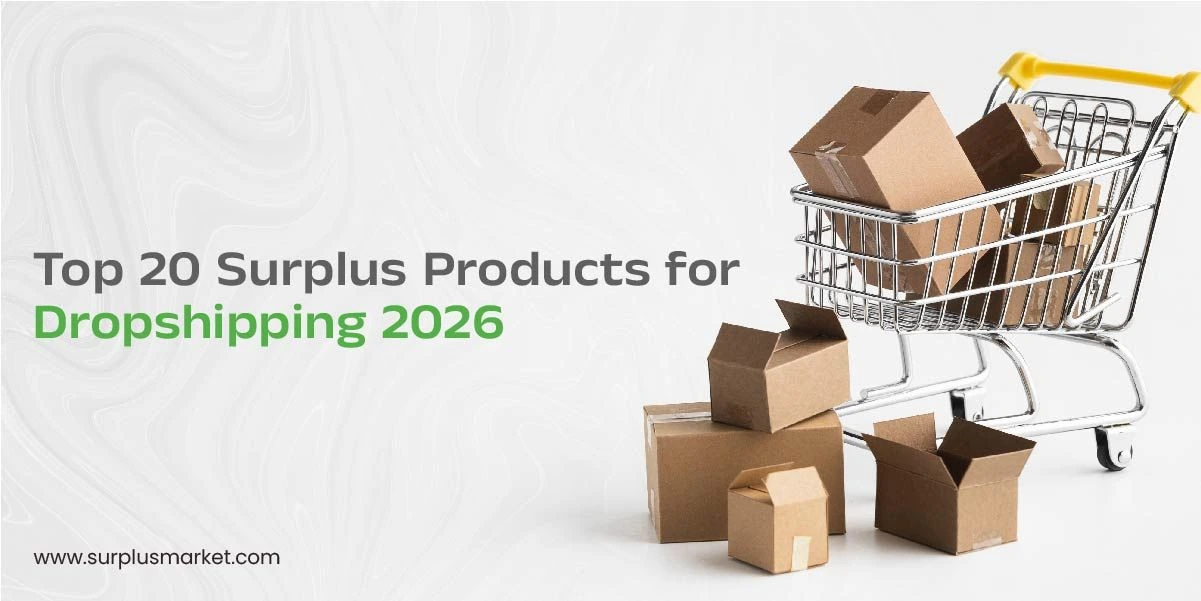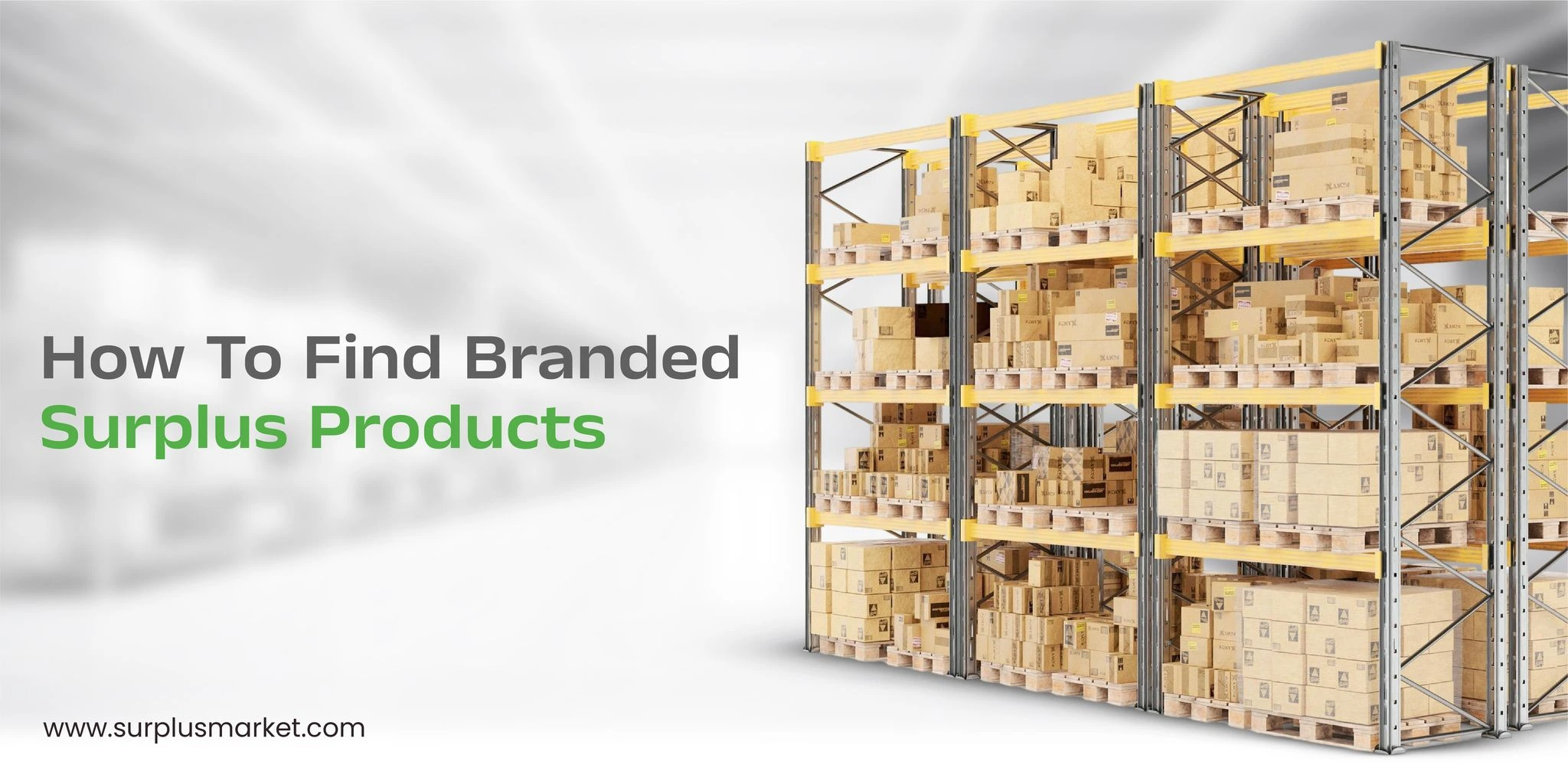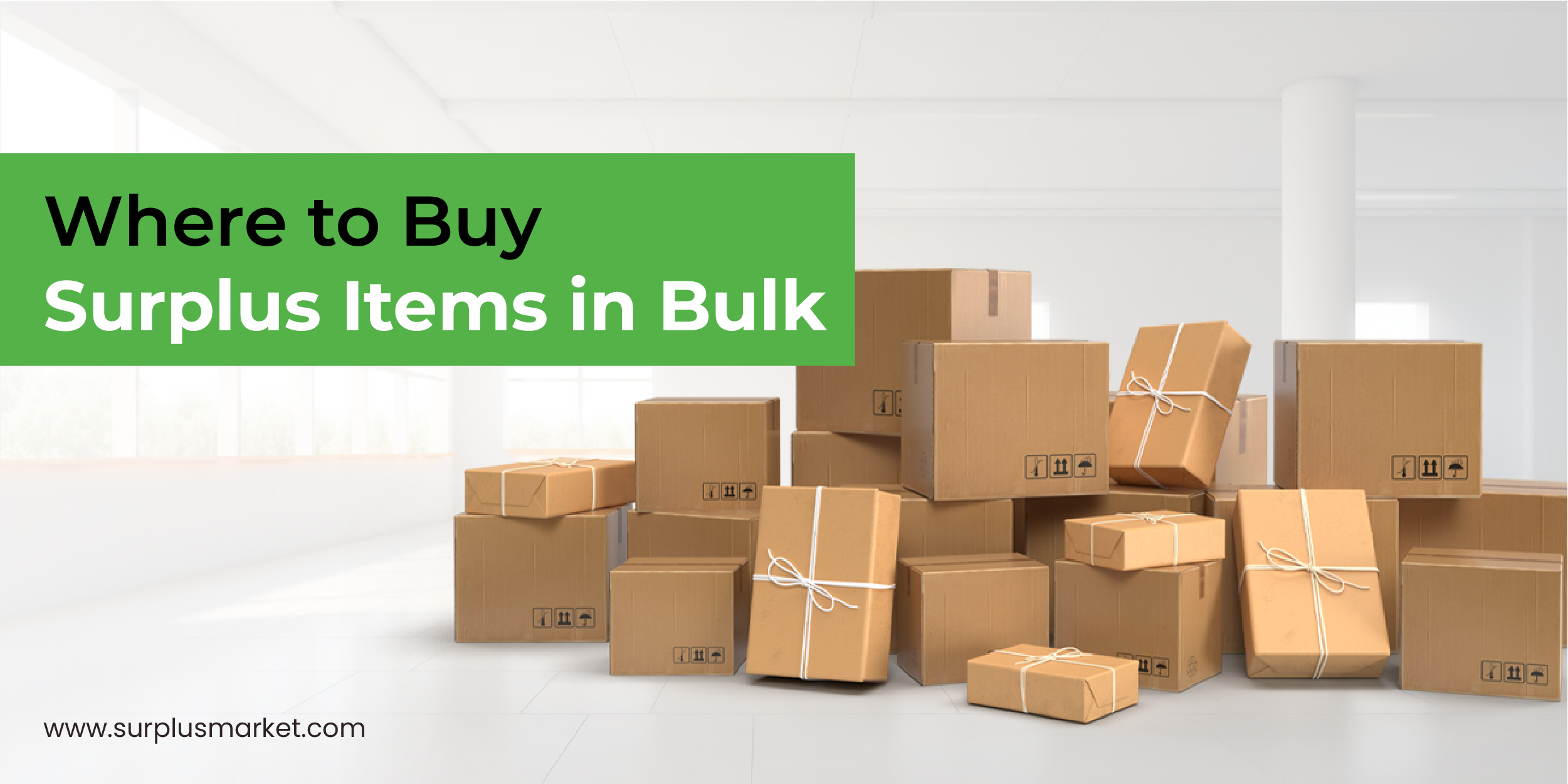How Surplus Market Helped Turn Unused Cleaning Inventory Into Profit
When Cleaning Businesses Shut Down, What Happens to Their Inventory? Of course, there is surplus in stock, and it needs to be cleared out. When a business shuts down—whether due to restructuring, market shifts, or owner retirement—there’s often one nagging question: “What do we do with all this leftover inventory?”
This was exactly the case for a mid-sized professional cleaning company based in the UAE. With operations winding down, the business was left with stockpiles of unopened commercial cleaning supplies—from industrial detergents to cleaning equipment and PPE kits.
But instead of taking a loss by scrapping or donating the products, the inventory was transformed into profit through Surplus Market, a leading surplus marketplace for buying and selling overstock goods.
Have Unused Inventory?
Whether you’re a reseller, liquidator, or warehouse manager, we make it easy to connect leftover commercial products with serious buyers across industries.
Get Started Now
How does Surplus Market Help with inventory liquidation services?
The Problem: What Happens After Business Closure
When businesses shut down, leftover inventory becomes a liability, especially when it's bulky, perishable, or specialized, like cleaning products. Storing such items incurs warehousing costs, and traditional exit options—like selling to brokers or auctioning at scrap value—rarely return even a fraction of the goods’ original value.
This cleaning company faced three clear issues:
- Time Sensitivity: Liquidation had to happen fast to vacate storage.
- Lack of Direct Buyers: No direct network of resellers existed.
- Pricing Pressure: Brokers offered rock-bottom prices.
They needed an intelligent inventory liquidation service—one that offered speed, transparency, and reach.
The Solution: Surplus Market in Action
Enter Surplus Market—a digital platform specializing in buying surplus stock and connecting sellers with B2B resellers actively looking for discounted commercial goods.
Here’s how the transformation unfolded:
- A savvy buyer/reseller, who focuses on reselling liquidation and closeout inventory, spotted an opportunity.
- They acquired the bulk cleaning supplies at a fair price from the shuttered company.
- The reseller then listed the goods on Surplus Market, leveraging its trusted B2B resale platform.
What made Surplus Market the ideal partner?
- Easy Onboarding of Verified buyers: Sellers can list surplus in stock quickly with images, specs, and desired pricing.
- Wide Exposure & Fast turnaround: The platform connects to verified buyers across multiple regions.
- Niche Targeting: Unlike generic marketplaces, Surplus Market targets resellers, cleaning contractors, and commercial facilities directly interested in such products.
- Fair pricing and Secure Transactions: The buyer was assured with cleanout inventory, transparent pricing, and verified transactions.
- Seamless transactions: The goods are sold within days smoothly and transparently.
The entire journey—from sourcing to relisting and sale—was powered by Surplus Market’s efficient ecosystem designed for modern inventory management.
The Outcome: From Waste Risk to Profitable Opportunity
Within one week, the reseller had recovered their purchasing cost and secured a 15% margin, selling to verified buyers in the hospitality and facilities management sector.
This outcome delivered threefold value:
- Profit for the buyer: Through a smart resale strategy and the right B2B resale platforms.
- Relief for the seller: Inventory was cleared without waste or heavy discounting.
- Sustainability for all: Perfectly usable products get a second life, reducing landfill waste and supporting circular commerce.
- This case proves that with the right platform, buying and reselling liquidation stock isn’t just practical—it’s profitable and sustainable.
Why Surplus Market Works So Well for Liquidation?
Liquidating surplus inventory is a challenge for many businesses. Traditional methods—like working with bulk buyers, scrap dealers, or unstructured platforms—often result in losses, poor visibility, or logistical headaches. This is where Surplus Market stands apart by offering a purpose-built, tech-driven, and niche-focused platform for proper business closure liquidation purposes.
A Purpose-Built Platform – Not Just a Marketplace
Unlike generic B2C e-commerce sites or informal liquidation groups, Surplus Market is tailored for B2B inventory turnover. That means the systems, buyers, and processes are all designed to match the needs of manufacturers, warehouse managers, and resellers dealing in commercial quantities.
- Category Filters and Bulk Listings: Sellers can list hundreds of SKUs at once, tag them by sector (like “cleaning supplies” or “industrial equipment”), and automate pricing rules.
- Verified Buyers: Buyers on the platform are pre-vetted businesses and resellers, ensuring serious inquiries and reduced transaction risk.
- Resale-Friendly Listings: Each listing includes product specifications, packaging details, expiry timelines (if applicable), and suggested use cases, helping buyers make faster decisions.
Access to a Vast, Targeted Buyer Network
Surplus Market doesn't just help list stock—it gets it seen by those most likely to buy.
- Industry Segmentation: Your cleaning equipment doesn’t just go to anyone—it’s shown to hospitality suppliers, facility management firms, and wholesalers in the cleaning and sanitation space.
- Regional Discovery: Inventory is promoted across multiple regions where demand matches availability. In this case, Middle Eastern and South Asian buyers looking for an option to sell overstock inventory found the listing quickly.
- Time-Efficient Reach: Listings are instantly visible to a dynamic audience actively looking for deals.
Secure and Transparent Transactions
Trust is essential in B2B liquidation. With large volumes and one-time sales, there's no room for uncertainty.
- Payment Gateways and Escrow: Surplus Market provides integrated secure payment options to protect both parties.
- Clear Pricing and Negotiation Tools: Sellers can set fixed prices or allow bulk negotiation with automated alerts.
- Documentation Support: From tax invoices to shipping coordination, the platform offers support and templates to make compliance simple.

Fast Turnaround and Reduced Operational Costs
One of the greatest wins of this case study? Speed.
- Inventory listed on Monday, sold by Friday.
- No warehousing extensions needed.
- No extra advertising costs or delays waiting on intermediary resellers.
- With real-time visibility, sellers can offload goods quickly and avoid the high cost of storing obsolete inventory.
Who Should Use the Surplus Market?
Whether you're dealing with end-of-line products, excess procurement, or a complete business shutdown, Surplus Market has become a go-to solution for many professional roles and industries to sell liquidation stock easily.
Let’s explore who benefits the most:
Resellers & Liquidators
Surplus Market allows them to:
- Buy directly from businesses without middlemen.
- Resell through their own channels, marketplaces, or local B2B contacts.
- Tap into niches like cleaning supplies, electronics, apparel, hardware, and more.
Example: In the case above, the buyer saw a gap in the UAE and Asian cleaning supply markets. Using Surplus Market, they bought in bulk and sold to hospitality clients, facilities vendors, and small commercial janitorial services.
Manufacturers and Warehousing Units
Surplus Market helps them:
- List old or obsolete SKUs for quick clearance.
- Avoid write-downs and waste.
- Open a new monetization channel without changing core operations.
Companies Undergoing Closure or Restructuring
Surplus Market provides a strategic, fast, and fair-value route to liquidate these items. Instead, they can:
- Connect directly with interested buyers.
- Receive competitive offers.
- Close deals quickly and securely.
Procurement Agents, Contractors & Project Managers
Surplus Market is a goldmine for them:
- Get reliable stock at a fraction of the retail price.
- Ensure product quality through detailed listings and verified seller ratings.
- Source uncommon or discontinued items quickly.
This particularly applies to sectors like construction, cleaning, facilities management, or logistics, where product specs matter, but margins are always tight.
Retailers and Commercial Buyers
Some businesses—especially independent shops, regional distributors, and online retailers—use Surplus Market to build up surplus inventory liquidation, low-cost inventory for resale. They benefit by:
- Acquiring branded or in-demand goods affordably.
- Building bundled product offers for eCommerce.
- Expanding their catalog without tying up working capital in full-price stock.
Startups & Sustainability-Focused Buyers
Finally, there's a rising class of eco-conscious entrepreneurs and startup founders who want to build sustainable supply chains. Surplus Market empowers them to:
- Reduce environmental impact by sourcing unused stock.
- Participate in the circular economy.
- Support ethical purchasing by giving products a second life.
Final Takeaway
Surplus Market turned a business closure into a business opportunity for both seller and buyer. This real-world case illustrates the immense potential of a structured, transparent, and buyer-ready surplus marketplace.
Are You Ready to Sell or Buy Surplus?
Whether you want to sell excess stock or buy closeout inventory, Surplus Market offers unmatched tools and reach. List Your Products Today. Start transforming unused goods into cash, value, and opportunity.








